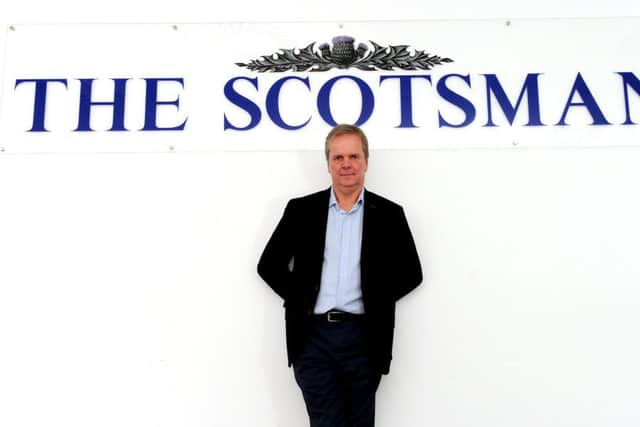Scotsman 200: A past to be proud of in a world which needs good journalism


In January 1817, the Duke of Wellington, who had decisively brought the global ambitions of Napoleon Bonaparte to an end in the “close-run” Battle of Waterloo, was still in France.
He was commander in chief of the occupying army and would not return to England until November 1818. Napoleon and the wars in Europe, and all that went with them, had dominated Britain and the Continent for many years. But that was over, and there was great change coming.
Advertisement
Hide AdAdvertisement
Hide AdAt home, Scotland’s Central Belt was seeing a huge growth in coal mines, and that ready supply of energy produced a massively expanding iron industry, which in its turn led to a thriving shipbuilding industry. Just 15 years earlier, a Scottish engineer, William Symington, had designed and built the world’s first practical steamboat, made for towing barges on the Forth and Clyde Canal.


It seems like a very different world, but we have something that provides a direct connection: The Scotsman.
In 1817, the pace of change was quickening, technological innovation was driving social change and that was driving political change. The pace of that change has simply got faster and faster, but through it all The Scotsman has told history as it was happening.
I still feel a wave of admiration and pride whenever I think of the long line of journalistic effort that has gone in to that – and it continues today. I and all the staff here are part of that and very conscious of it. The reputation of this newspaper was built by the ceaseless efforts of all those men and women, and we know we have to work hard to uphold it. We have our part to play in ensuring that its values are upheld and continued, our part to play in keeping the line unbroken.
Journalism has not had an easy ride of it recently, the actions of a tiny minority blackening the name of an entire profession and bringing tighter regulation and control, the economic challenges thrown up by technological innovation, and the opening up of communication by those same technological innovations have all had a significant impact.


However, as we are seeing in the US even in the early days of the Trump administration, there is still a clear and fundamental need for good journalism that can question the actions and statements of the powerful, where they can be held up to be accountable to the people, where the truth is rooted out.
The Fourth Estate still has a vital role to play in our society. It is not perfect, there are difficulties, but the values enshrined right at the beginning, of fairness and openness, of honesty and integrity, of passion and compassion, are the values that are to be found driving it today. That is why the line remains unbroken. And that is why it will remain unbroken. Being part of the 200 years of this newspaper is a doughty responsibility and at the same time a wonderful privilege.
And although today is largely about marking the bicentenary and the past, it is also in no small part about the future, and marking improvements we are making to the paper. After all, history tells us we cannot stand still.
Advertisement
Hide AdAdvertisement
Hide AdSo from today we will be bringing you new columnists in an expanded Perspective section to bring more comment and analysis to the big issues facing Scotland in the 21st century.
Today sees the debut of Ayesha Hazarika, a former Labour adviser who is now a political commentator, broadcaster and stand-up comedian. Tomorrow we will bring you the views of former justice minister Kenny MacAskill, and on Friday we welcome back former Labour cabinet minister Brian Wilson to a regular slot.
We are also kicking off Remarkable Voices, a year-long initiative to bring to life the past, present and future of Scotland through telling the stories of 200 remarkable people. We also publish the first of our 200 new contributors, recruited from every sector and demographic in the country to start having new debates and better reflect the vibrancy of modern Scotland.
And we are also increasing our business coverage with more news, features and columnists every day of the week. Today sees regular Perspective writer Jim Duffy begin a new business column.
With all that, we should be good for another 200 years.